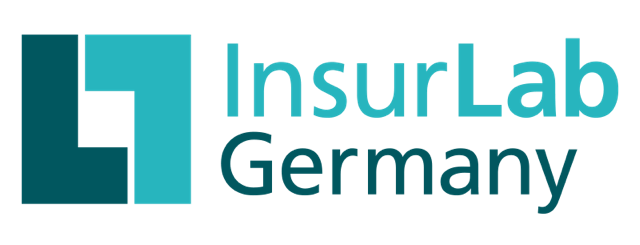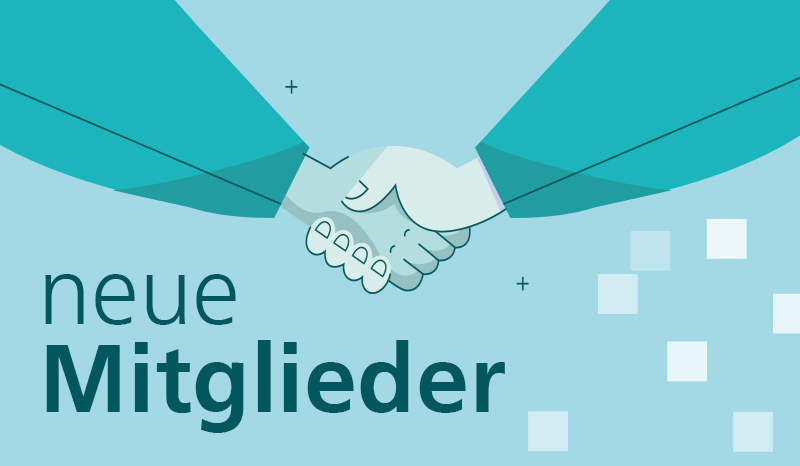Since the beginning of the year, the Fraunhofer Institute for Intelligent Analysis and Information Systems IAIS has been a member of the InsurLab Germany Community. Dr. Rafet Sifa is head of the Cognitive Business Optimization business unit, deputy head of the Media Engineering department and Lead Data Scientist at Fraunhofer IAIS. In this interview, he talks about the underestimated potential of artificial intelligence (AI) for the insurance industry and where in particular he would rely more on AI solutions.
Today we're talking about underestimated potential uses of artificial intelligence in the insurance industry. Why is this topic so important to you?
One of the main reasons for using AI in the insurance industry is to optimize the customer experience. There are already many innovative solutions for this, such as chatbots or self-service portals. Unfortunately, however, I have heard more and more that chatbots in particular have not generated the response from customers that insurers had hoped for.
It has been my experience that there is a certain basic skepticism and dissatisfaction with AI-based solutions. Some "don't believe" in AI as a solution across the board. This is also reflected in the numbers: According to a 2020 study by Capgemini, only a minority of companies are currently using AI solutions. Only 5 percent of banks and 6 percent of insurers engage with their customers via AI-powered applications. Smaller proof-of-concepts are used, but comparatively few AI applications actually go live. Customers tell us that the biggest hurdles are data protection and regulation - keyword "trusted AI" - and the costs associated with implementation.
The current situation in the industry is that most German insurance companies have tended to underperform by international standards in recent years. As far as digitization and innovation are concerned, Germany is certainly not a pioneer as a location. Data-driven business models are the future. To remain relevant, insurers must evaluate Big Data more efficiently and realize cross-divisional optimization potential with the help of the insights gained. Despite the unsatisfactory initial experiences with AI, they should continue to invest, promote talent and build the necessary infrastructure. It is now important for German companies to stay on the ball.
Where would you start with your AI solutions?
Digitization is nothing new for the insurance industry. As I mentioned earlier, there are many innovative solutions to make customer experience more efficient and better. Nowadays, insurers are interacting with customers in a more modern way on the front end. Of course, there is still potential for optimization here, but I think that many processes and outdated systems have been left in the back end that definitely need to be overhauled.
For example, dark processing is already automated quite a bit, but the rule sets used to do so are often so complex and bloated that adjustments to further Automation too expensive and take too long. As a result, the automation of dark processing lags behind the already modernized front end. This problem could be solved by using AIs, since they learn and understand the document processing process by means of examples. Changing individual rules is not a problem, as the AI has understood the systematics and continues to function without costly readjustments. There is still a lot of potential here for the use of AI to greatly reduce administrative costs.
You manage the business unit "Cognitive Business Optimization". What exactly can I imagine under it?
I have just mentioned the often underestimated potential for optimization in the industry, and this is precisely what we are experts in. In the Business Area "Cognitive Business Optimization"with the optimization and automation of processes. With the help of state-of-the-art processes and artificial intelligence methods, we can automatically analyze business information and key figures. To do this, our AI-based solutions extract all relevant information, for example from contracts or annual reports, and check it for consistency and plausibility. Our service is always customized, so we can individually adapt the information and key figures to be filtered to the customer's needs. What information remains can then be automatically summarized in a report or overview.
That certainly sounds promising. How are your AI-based solutions already being used?
It's really promising and just incredibly exciting to be involved with the current technological trends. To make the use cases of our AI-based solutions a bit more understandable, I like to tell you about a project for one of our latest customers. We developed a tool for the auditor PricewaterhouseCoopers GmbH to check the consistency and completeness of annual financial statement notes and financial reports. For this, our AI had to be able to answer some essential questions:
- How does an auditor even judge whether a document is complete or not?
- Which KPIs and text passages are relevant to answer the completeness or consistency question?
- How do we find relevant text passages and KPIs in the documents? In one place or scattered over several sections and documents?
- Does relevant information need to be interpreted in the context of other text passages?
- How do you identify outliers or anomalies?
During development, we incorporated the expertise of auditors so that the decision-making process of an auditor can be mapped. Our tool analyzes every single transaction, user, amount, and account to detect anomalies. The audit process was thereby much more efficient and safer. You can certainly imagine that some of the questions our AI had to answer are not only relevant for accountants. There are comparable work steps in all industries.
There is definitely still a lot of potential for process optimization in the industry. But some people are afraid that their job could soon be replaced by an AI. Where do you stand on this?
Unfortunately, this is a very widespread opinion. Many people think of dystopian scenarios, as they are often depicted in Hollywood movies. However, I can assure you that there will be no Skynet takeover in the foreseeable future. (laughs)
But let's get serious now. People will continue to be needed in the future. A study from the McKinsey Global Institute estimates that around 5 percent of jobs as we know them today will be eliminated by 2030. Still other sources predict that half of all jobs will be eliminated. Precise predictions are not possible. Some job fields and sectors of the economy will, of course, be hit harder than others. But for now, we have to ask whether an AI solution makes sense at all. That always depends on the individual case, including the quantity and quality of the data with which we can train our algorithm and how complex the problem to be solved is.
"AI should not be seen as a threat, but as an opportunity."
With the help of AI, we can be relieved of monotonous and repetitive tasks, which can have a positive effect on the psychological well-being of employees. In this way, people will be able to devote themselves to more and more creative tasks. I believe this will do a lot of people a favor. Because when it comes to creativity, humans are clearly irreplaceable. What's more, AI not only takes away jobs, but also creates new ones, of course. In order for data-driven business models to work in the future, we will need many people who are familiar with the administration of AI applications and the interpretation of data - so-called "citizen data scientists.
And last but not least: What do you hope to gain from the InsurLab Germany membership?
With our innovative solutions and know-how, we want to convince insurers of the benefits of AI and thus drive forward the digitization of the industry. I am certain that there is still untapped potential for optimization in all areas, and we can support this with our AI solutions. However, in order for insurers to benefit more from AI in the future, cross-divisional optimization potential must also be identified. I hope that this article has provided food for thought and that some of you have become a little more aware of where you could perhaps start with AI solutions.


